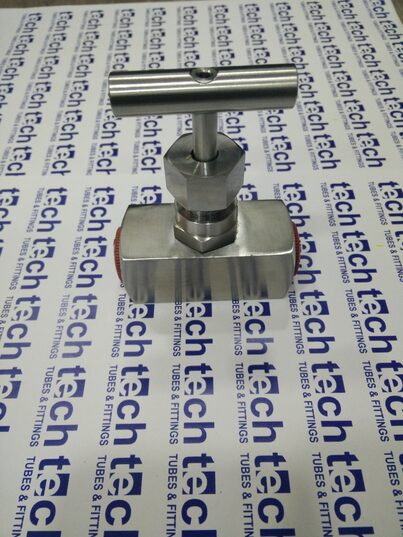Needle valves are vital components used in various industries for precise flow control of fluids and gases. These valves feature a slender, tapered pin that can be gradually raised or lowered within the valve body to regulate the flow passage, allowing for precise adjustment of flow rates. Below, we explore the uses, types, industries, and their relevance to tube fittings.
Uses of Needle Valves:
- Flow Control: Needle valves are primarily used for precise flow control applications where accurate regulation of fluid or gas flow is required.
- Pressure Regulation: They are also utilized for pressure regulation tasks, ensuring that pressure levels remain within specified limits.
- Shut-Off Applications: Needle valves can act as shut-off valves to stop the flow completely when necessary, providing reliable sealing and preventing leakage.
- Instrumentation: In instrumentation systems, needle valves are employed for fine-tuning flow rates in sensitive equipment such as pressure gauges and flow meters.
Types of Needle Valves:
- Straight Needle Valves: These valves have a straight flow path and are suitable for general-purpose applications.
- Angle Needle Valves: Featuring an angled flow path, these valves are ideal for installations where space constraints exist or where flow direction needs adjustment.
- Integral Bonnet Needle Valves: These valves have the bonnet integrated into the valve body, enhancing durability and minimizing potential leak paths.
- Threaded Needle Valves: Threaded needle valves have threaded connections for easy installation and removal, making them suitable for temporary or low-pressure applications.
Industries Utilizing Needle Valves:
- Oil and Gas: Needle valves are widely used in oil and gas production facilities, refineries, and pipelines for flow and pressure control in process lines and sampling systems.
- Chemical Processing: In chemical plants, needle valves play a critical role in controlling the flow of corrosive and hazardous chemicals with precision.
- Power Generation: Power plants utilize needle valves in steam and water systems for flow control, pressure regulation, and isolation of equipment.
- Aerospace: Needle valves are employed in aerospace applications for regulating fuel flow, hydraulic fluid, and pneumatic systems in aircraft and spacecraft.
- Instrumentation and Laboratory: These valves are essential in instrumentation systems, analytical equipment, and laboratories for precise flow and pressure control in experiments and testing.
Relevance to Tube Fittings: Needle valves are often integrated into tube fitting assemblies to provide flow control capabilities. They can be connected to tubing using compression fittings, flare fittings, or other tube fitting types. By incorporating needle valves into tube fitting systems, engineers can achieve precise flow control and isolation in fluid handling systems.
In conclusion, needle valves are versatile components with diverse applications across various industries. Their ability to provide precise flow control, pressure regulation, and shut-off capabilities makes them indispensable in critical processes. When integrated with tube fittings, needle valves enhance the functionality and performance of fluid handling systems, ensuring efficient operation and reliability



